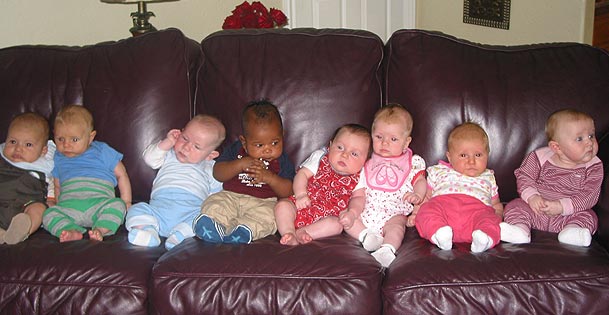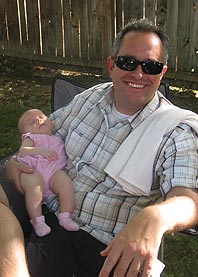Communities of Practice

A long time ago, I read somewhere that people typically make life-time friends around two major chapters in our lives: at college, or other graduate learning communities, and after we have a baby.
I witness this possibility each time I teach a childbirth class series and come back to the class reunion. While pregnant in the childbirth class, couples may be more or less communicative with other couples. Some are quite interactive, others not so much, but come to the reunion, and you will see nearly all the proud (and awestruck) parents easily communicating with each other, sharing stories, laughing and encouraging each other. Parenthood brings camaraderie in a way I have seen little else do.

It makes sense. Parenting is the quintessential “on-the-job training”. We have been thrown into the ring and must find every resource, every asset, every companion-in-learning we can find. This is vitally important because our job requires, not the design or maintenance of some inanimate system or project, but the nurturance and rearing of a dynamic little being who we love dearly.
Our investment is great. So, it makes sense that we seek out others in the same situation to help lower our learning curve. We seek community and make our learning social.
And so we create “Communities of Practice”, a term coined by sociologists, Jean Lave and Etienne Wenger, PhD. Communities of Practice are an example of an alternative to our culturally defined and structured learning – something which has a beginning and end; and is done in isolation or individually, apart from the rest of our lives and through a teacher. A Community of Practice, conversely, is the very essential, meaningful way we learn through participation and process. And, in the case of a new parent, it is crucial, because it provides meaning, and identity within our new role.
According to Wenger, “Communities of practice are formed by people who engage in a process of collective learning in a shared domain of human endeavor. In a nutshell: Communities of practice are groups of people who share a concern or a passion for something they do and who interact regularly to learn how to do it better.”
Yet, Wenger, explains, “Not everything called a community is a community of practice. A neighborhood for instance, is often called a community, but is usually not a community of practice”.
In a Community of Practice, these 3 characteristics must exist:
- The domain: the domain is the identity which is shared by the group: expectant parents, new parents, doula, childbirth educator, etc. “Membership” to the community connotes an acceptance of, or commitment to the identity: doula. The value to the “members” is the “collective competence” and the opportunity to learn from each other.
- The community: This is the coming-together part. Whether in a class, a support group or a play group, “in pursuing their interest in their domain, members engage in joint activities and discussions, help each other, and share information. They build relationships that enable them to learn from each other.” Even if the daily (doula work) is done mostly alone, even in a different city or state, the repeated community exchange informs their experience.
- The practice: “A community of practice is not merely a community of interest-people who like certain kinds of movies, for instance. Members of a community of practice are (doula/childbirth educator) practitioners. They develop a shared repertoire of resources: experiences, stories, tools, ways of addressing recurring problems-in short a shared practice. This takes time and sustained interaction. A good conversation with a stranger on an airplane may give you all sorts of interesting insights, but it does not in itself make for a community of practice. It is the combination of these three elements that constitutes a community of practice. And it is by developing these three elements in parallel that one cultivates such a community.”
So this “community of practice” is what I am calling my Sharing Trust. It is here where the shared repetoire of resources (and of doubts and questioning, joys and celebrations) happen. And it is here where we can just BE.
Afterall, when doulas and childbirth educators connect… communities thrive.
